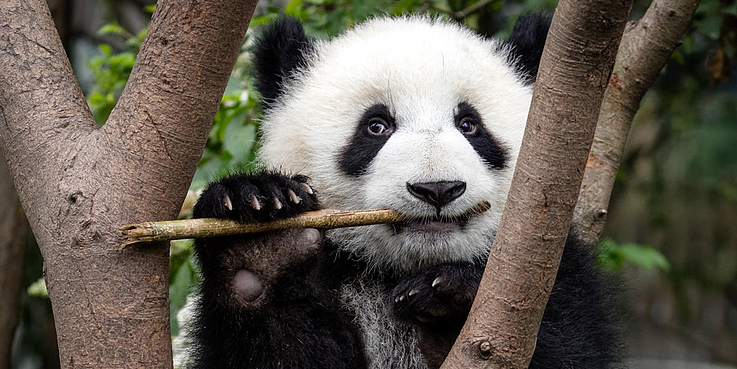All around the world, people are waking up to the deepening crisis of nature loss. We’re experiencing a growing realization that nature is our life-support system and that no one will be spared from the impacts of its loss.
Here at WWF, an independent conservation organization active in nearly 100 countries, we are working to sustain the natural world for the benefit of people and wildlife.
We are part of a growing coalition calling on world leaders to set nature on the path to recovery by 2030 – a New Deal for Nature and People as comprehensive as the global climate deal.
Working with many others – from individuals and communities to business and government – WWF urgently seeks to protect and restore natural habitats, stop the mass extinction of wildlife, and make the way we produce and consume sustainable.
Our mission
To stop the degradation of the earth’s natural environment and to build a future in which humans live in harmony with nature by:
conserving the world’s biological diversity
ensuring that the use of renewable natural resources is sustainable
promoting the reduction of pollution and wasteful consumption.
We can still escape the worst impacts of climate change if we - governments, companies, cities, and communities - come together to urgently reduce global greenhouse gas emissions.
WHAT ARE THE CAUSES OF CLIMATE CHANGE?
Climate change is caused by the increase in greenhouse gases, such as carbon dioxide, in the atmosphere. This is driven by human activities - primarily the burning of fossil fuels (coal, oil, and gas) and land-use change, such as deforestation.
Our climate system is in crisis, and it’s because of our actions (or rather, inaction) on climate change.
The hottest year on record was 2023, with many climate records shattered. Scientists are already predicting that 2024 will break the 2023 record of being the hottest year since climate records began in the 1800s.
A significant new record has just been set. In June, the European Union's Copernicus Climate Change Service (C3S) announced that the world had 12 consecutive months of global temperatures reaching 1.5°C, the upper limit of global warming to avoid the worst impacts of climate change.
Our planet and its people are resilient. But some impacts are escalating too quickly and occurring too frequently for the world to be able to adapt and avoid devastating impacts.
Vulnerable communities and countries bear the brunt of climate impacts because they have the least resources and are the least able to prepare as a result.
The longer we delay taking climate action, the fewer options we have.


